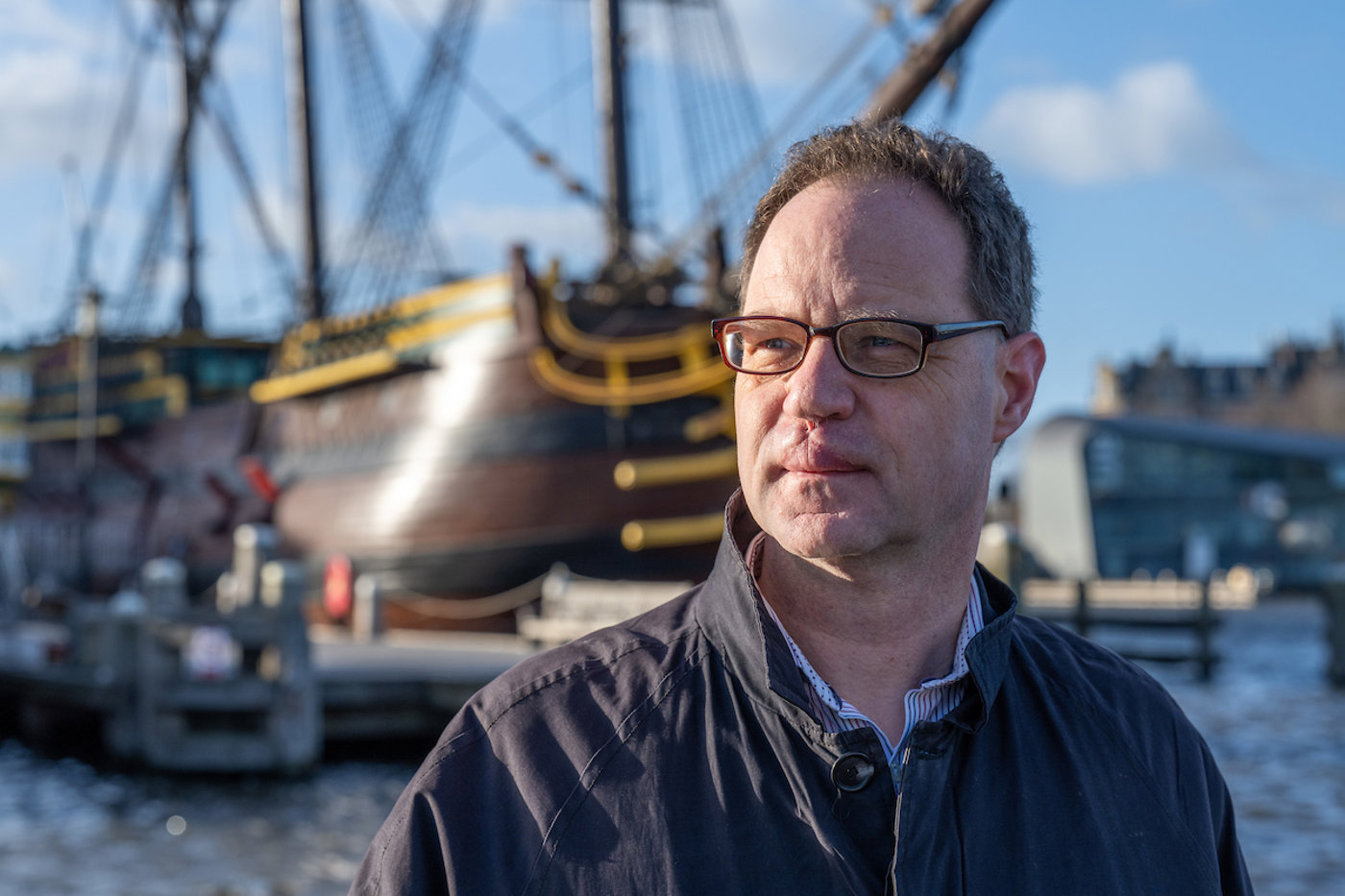634 billion euros. That is APG’s total invested assets worldwide (position as of the end of December 2021). The goal: a good pension in a livable world for the funds' participants. The portfolio is diversified, of course. From investments in wind farms in Zeeland to Australian listed shares in stores. And from safe bonds to the somewhat more fluctuating trade in gold or soy. Who are the people behind these investments? What drives them? What choices do they make? And why?
In this episode of the series The Investors: Ton van Ooijen, whose responsibility at APG is to invest in consumer goods in the developed markets.
It was big news recently: Unilever’s takeover bid for GSK’s consumer division. This came as a surprise to many, including APG. In a response, the pension administrator wrote that it did see many strategic advantages to entering the field of consumer health on a large scale. So why was APG not overly happy about Unilever’s bid?
Van Ooijen: “In and of itself, there was not much to criticize about the acquisition. But Unilever is currently in transition and is working to increase its turnover to a higher level. They would therefore be better off focusing on putting their own house in order and showing that there are enough consumers for their own products. So the offer was a bit unfortunate in its timing and also probably a bit on the high side. But the fact that they want to expand into vitamins and toothpaste doesn’t strike me as odd. They already sell toothpaste, so they can use their own distribution network in emerging markets for that. In addition, about two years ago, Unilever bought GSK’s Horlicks brand of nutritional drinks, and it is doing very well. These are interesting things that are part of the bigger picture. So, in the longer term, I am not too worried about Unilever.”
First, about your work: you focus on developed markets. Isn’t a portfolio that focuses on emerging markets much more exciting?
“The emerging markets are very exciting. But many companies that fall into my portfolio get most of their growth from those emerging markets. So, there have been discussions at times about whether a company belonged in my portfolio or in the emerging markets portfolio. So, we agreed that the main listing of a company would determine which portfolio it fell into. For Heineken, for example, more than half of their sales now come from emerging markets. Nigeria used to be important to them, now it’s Vietnam, Brazil and Mexico. For Heineken, those countries are more important than America. But because the company is listed on the AEX, it is included in my portfolio. For beauty companies like L’Oréal and Estée Lauder, China is now the biggest growth market, but they are included in my portfolio as well. And in the name of the world's largest brewing chain, AB InBev, ‘AB’ stands for American Anheuser Busch, ‘In’ for Belgian Interbrew and ‘Bev’ for Brazilian AmBev. Most of the companies in my portfolio are really global companies. So, it's not as boring as you might think; in fact, it’s quite fascinating.”
Back to Unilever. In addition to criticism of the takeover bid, the company is under fire from activist investors for a more fundamental point. The company is said to be too concerned with sustainability at the expense of profitability. APG is convinced that performance does not have to come at the expense of sustainability. Do you understand the concern of the activist investors?
“Yes and no. Sustainability by itself is not a good reason to invest in something. But we do think that sustainability can lead to innovation and the creation of additional demand. And that, in turn, can lead to higher returns over a longer period of time. At Danone, for example, the emphasis on sustainability seemed to come at the expense of a focus on revenue and profit growth. But a company like Nestlé is also at the forefront of sustainability and they do manage to come up with innovative products that they can charge a higher price for and therefore also achieve greater profits. So, we don’t agree with investors who think that sustainability only costs money and is bad for investors. But sustainability should also not be used as an excuse for mediocre returns for a portfolio that could do better, as with Danone.”
It is important to APG that the companies it invests in have sustainability as a top priority. What does APG do to prevent activist investors who have little to do with sustainability from hijacking a company’s share price?
“We make it clear to them that we think sustainability is very important and that you can also show superior profit growth with it. But you do have to combine it with innovation and marketing, so that you come up with a product that is not only good for the planet but also for the consumer. Unilever was criticized by British fund manager Terry Smith for putting too much focus on sustainability. But I think he is fine with Unilever developing innovative products and linking that to sustainability. A company has to make products that the consumer wants, and sustainability is a trend in society too.”
